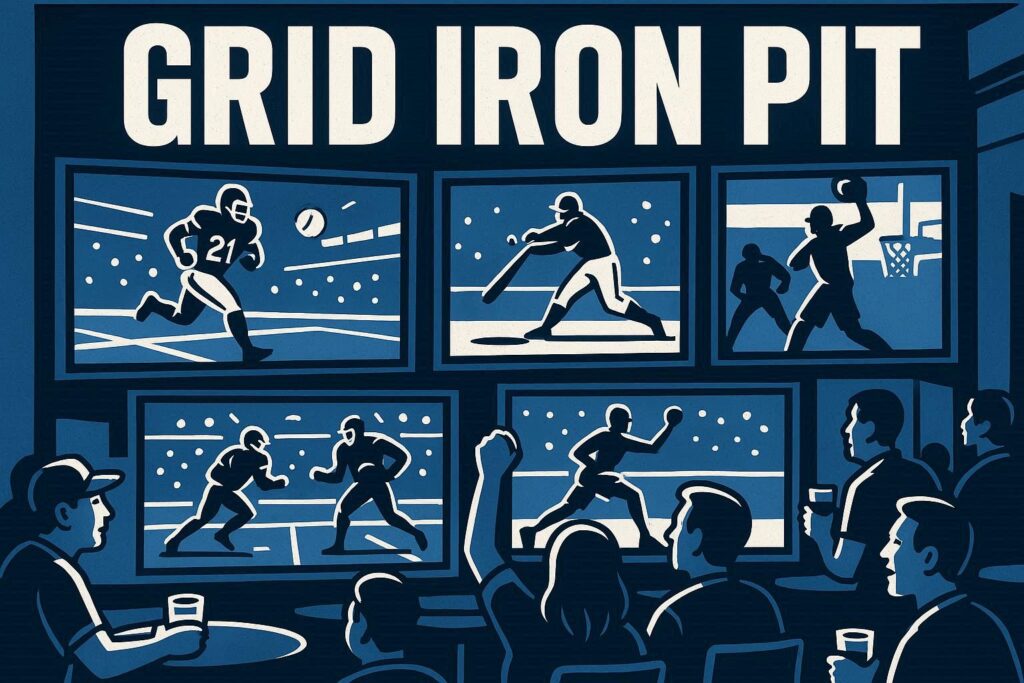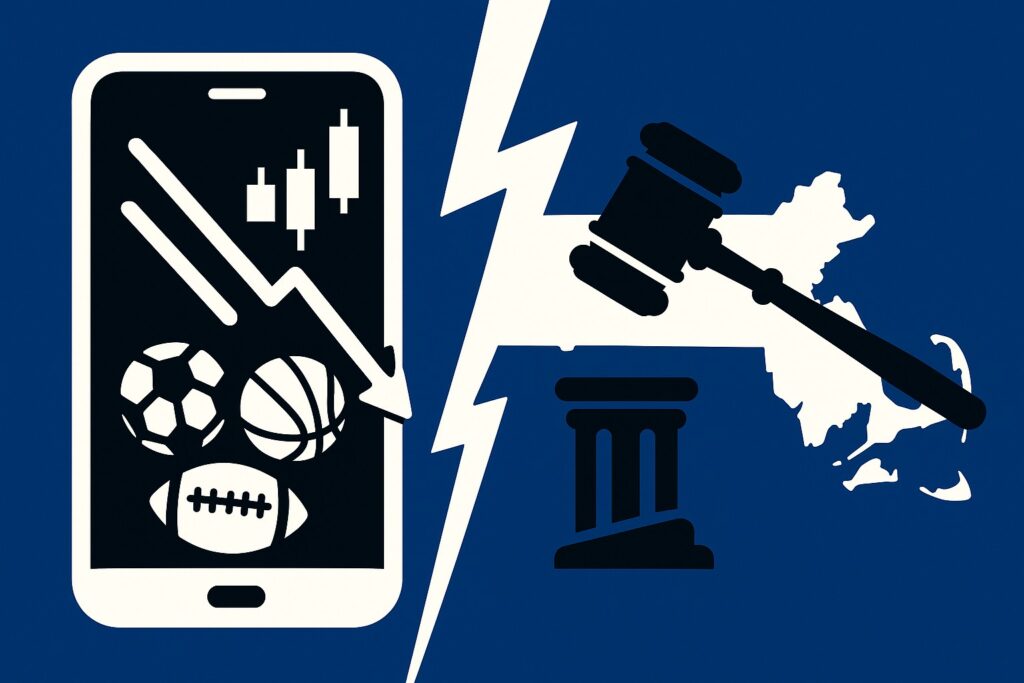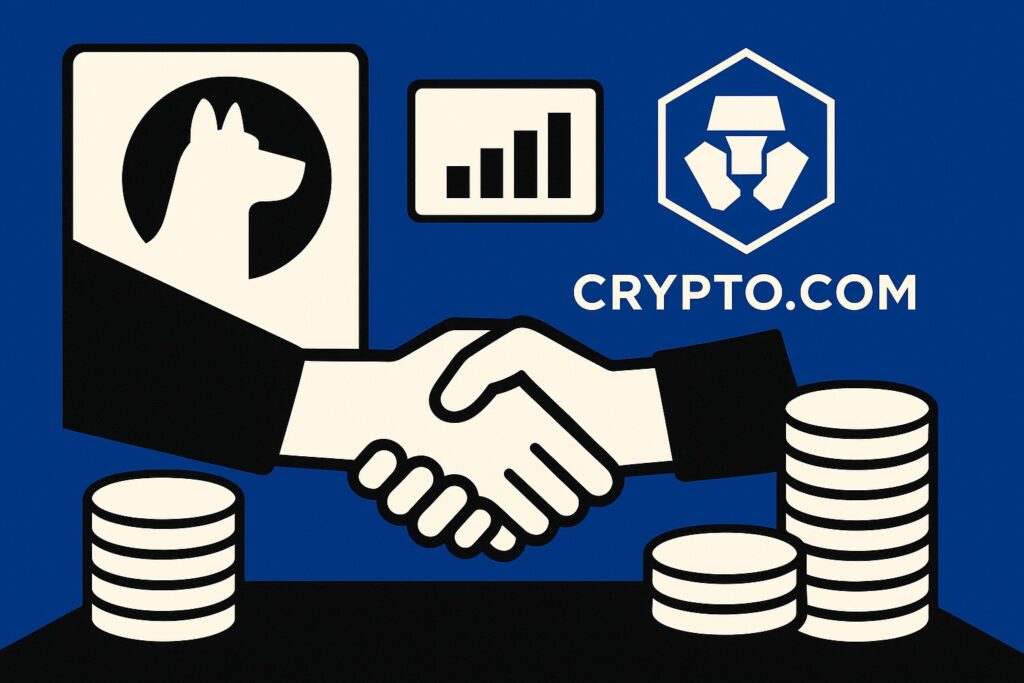FanDuel is typically one of the top two online sportsbooks in the Illinois Gaming Board’s (IGB) reports of monthly revenue and wagers. FanDuel is also now the first licensed online sportsbook in Illinois to issue a policy change in response to a recent addition to Illinois’ tax structure for sports wagering.
FanDuel’s new $0.50 per bet transaction fee in Illinois might not be sufficient to remove FanDuel from its spot on the market share podium. If ever there was a time for Illinoisans to consider other options, however, this could be it.
FanDuel shares details on new transaction fee
According to a June 10 press release, “from September 1, 2025, FanDuel, Flutter’s US market-leading brand, announces that it will introduce a new $0.50 transaction fee on each bet placed on its platform in Illinois.” The statement cites “the recent decision by the Illinois State legislature to introduce a betting transaction fee for licensed operators on all sports wagers” as a reason for the move.
Flutter also promises to revoke the transaction fee if Illinois reverses course. Although the budget bill that includes the change to how Illinois taxes sports bets is not yet final, Gov. J.B. Pritzker is expected to sign it soon.
The bill levies a $0.25 fee on every bet placed using licensed sportsbooks in Illinois for the first 20 million bets each licensee takes in a year. That fee escalates to $0.50 for subsequent wagers over that 20 million threshold.
The new fee is in addition to the tax that FanDuel and other sportsbook licensees pay to Illinois on their adjusted revenue. That rate can be as high as 40%, depending on how much the book claims in winnings.
At this point, FanDuel is the only gaming company that offers online sports betting in Illinois to add a fee in response to the state’s change. Flutter CEO Peter Jackson pointed to a potential consequence of passing the fee onto the bettor.
Jackson details possible shifts in market
Jackson made his thoughts on the new transaction fee clear in the June 10 statement, especially on what could happen to licensed operators in Illinois.
“We also believe the introduction of the Illinois Transaction Fee will likely motivate some Illinois-based customers to bet with unregulated operators,” Jackson stated.
That may not prove true to a great extent if other licensees in Illinois don’t follow FanDuel’s lead. The additional cost of wagering with FanDuel might only push some FanDuel players to choose other licensed apps that haven’t added a clear transaction fee.
Other regulated online sportsbooks in Illinois may take similar action that is not as easily distinguishable by bettors, too. For example, books could shorten their odds to account for the new fee.
Bettors are likely to notice that type of change, however, especially if it is uniform across all sports and market types. Books could also impose higher betting minimums, especially on wagers with more player-friendly odds.
Regardless of how the licensees package any changes, Jackson’s words might become prescient. Numerous options resembling online sports wagering in Illinois could become attractive to consumers.
Alternatives that might gain market share in Illinois
Illinoisans have access to multiple alternatives to licensed sportsbooks, like:
- Event-based prediction contract exchanges
- Daily fantasy sports games against the house
- Sweepstakes-based sports-centric prediction games
These options will not be subject to Illinois’ transaction fee. For that reason, they could represent more affordable ways to enjoy an experience that is akin to standard online sports betting.
If these options do become more popular among Illinoisans, that might prompt the legislature to look more closely at regulating them. There has been some action out of the state government on the topic of sweepstakes gaming.
Illinois’ flirtations with tighter regulations on sweepstakes
In February, Illinois Sen. Bill Cunningham proposed SB 1705, which would have broadened the definition of gambling in Illinois’ code to include sweepstakes-based games. The bill never saw much action in committee, however, and the regular legislative session has wrapped in Illinois for 2025.
While the bill can carry over to 2026, the lack of attention it received in 2025 doesn’t suggest that it will be a priority in the next session. The IGB might be pivotal in bringing attention to the matter, though.
The IGB has issued cease-and-desist letters to entities it deems in violation of Illinois law in offering online gambling without a license. However, enforcement has not been as full-throated, likely due to obstacles in pursuing such actions.
Many of the targets of the letters are either not based in the United States or operate exchanges regulated by the US government. Without explicit standards in Illinois law, prosecuting potential violations could be nebulous.
A drop in tax revenue for Illinois due to people choosing alternatives to licensed sportsbooks might bring new scrutiny to those alternatives to recapture revenue. Changes by licensed sports betting apps in Illinois might have both benefits and downsides for alternatives in the state.




